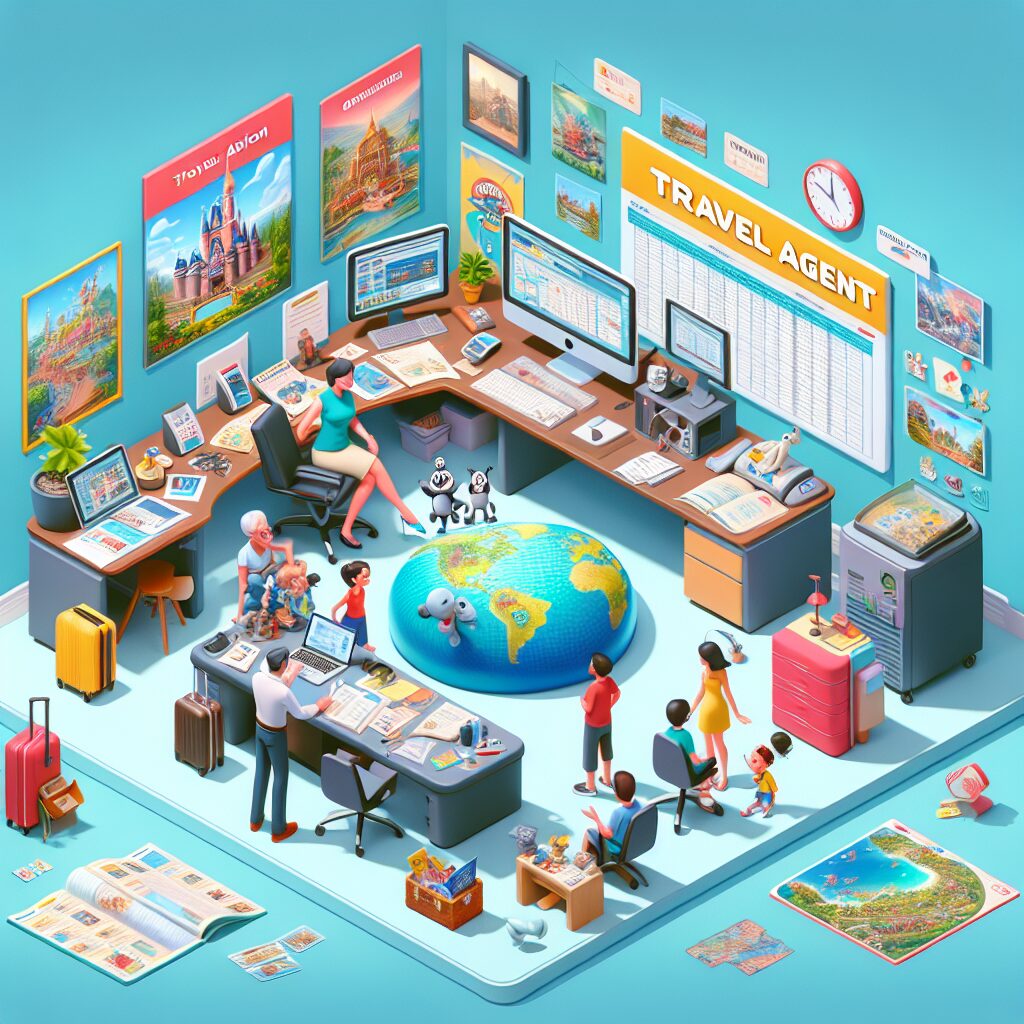In the dynamic world of healthcare, a Travel Pathology Assistant plays a fascinating and critical role behind the scenes. As a specialized kind of medical professional, these assistants are akin to detectives in the laboratory, providing pivotal support to pathologists in the examination and analysis of biological specimens. Their work is integral in unearthing hidden stories beneath the microscope, concluding in diagnoses that are essential for patient care. What sets a Travel Pathology Assistant apart is their unique capability to combine their scientific prowess with an adventurous career that allows them to explore different medical environments and regions, bringing their expertise to various practices and laboratories in need of short-term staffing solutions.
This roaming aspect of their job means that Travel Pathology Assistants must quickly adapt to new settings and teams, all the while maintaining the highest standards of laboratory practice. Their experiences across multiple workplaces not only broaden their professional horizon but also contribute to a more diverse and well-rounded skill set, which is highly valued in today’s medical field. In the next segment of this article, we’ll delve into the key takeaways of what it takes to succeed in this role, including the educational paths, the necessary certifications, the unique challenges faced, and the rewards that come with choosing such a vibrant career path. Stay tuned as we unpack the life of a Travel Pathology Assistant, unveiling the layers of an occupation that is as demanding as it is fulfilling.
Essential Insights
1. A travel pathology assistant is a specialized healthcare professional who works on a contract basis, often through agencies, and travels to different locations where their skills are needed. They assist pathologists in the examination and diagnosis of body tissues and are crucial in the detection of diseases such as cancer.
2. The role of a travel pathology assistant includes preparing and examining surgical specimens, performing autopsies, and assisting in forensic examinations. They must also ensure that specimens are properly collected, processed, and analyzed, maintaining accurate record-keeping and compliance with healthcare regulations.
3. Educational requirements for a travel pathology assistant typically include a bachelor’s degree in a life science field, followed by a specialized pathology assistant program that is accredited by the National Accrediting Agency for Clinical Laboratory Sciences (NAACLS). Certification may also be required, depending on the state and employer.
4. Travel pathology assistants must possess strong analytical skills, attention to detail, and the ability to work independently. They should also have excellent communication skills as they often interact with pathologists, other healthcare staff, and occasionally with patients’ families.
5. The demand for travel pathology assistants is driven by factors such as temporary staff shortages, the need for specialized skills in remote or understaffed areas, and the flexibility required to meet the variable demands of healthcare facilities. As a result, travel pathology assistants can expect to work in a variety of settings, including hospitals, clinics, and forensic laboratories, adapting to new environments and teams with each assignment.
Exploring the Role of a Travel Pathology Assistant: Definition and Responsibilities
Travel pathology assistants are an essential component of the medical sector, serving a unique role that combines the expertise of a traditional pathology assistant with the adaptability of a traveling professional. These individuals typically work under the supervision of a pathologist, assisting with the examination of tissues, performing autopsies, and conducting various pathological tests. Their duties include preparing specimens for analysis, ensuring accurate documentation of findings, and implementing laboratory quality control protocols.
One key characteristic that distinguishes travel pathology assistants from their non-mobile counterparts is the flexibility to work in different laboratory and clinical settings. Often affiliated with staffing agencies, these professionals travel to hospitals, clinics, and laboratories that require their specialized expertise for temporary periods, covering staffing shortages, or providing extra support during high-volume periods.
Career Path and Education Requirements for Travel Pathology Assistants
To become a travel pathology assistant, an individual must attain an appropriate level of education and certification, typically at least a bachelor’s degree in a life science field, coupled with a specialized training program in pathology assisting accredited by the National Accrediting Agency for Clinical Laboratory Sciences (NAACLS). Some states may also require licensure or certification for practicing pathologists’ assistants.
After acquiring the formal education and any state-specific certification necessary, aspiring travel pathology assistants can gain experience in clinical settings to become adept at the various responsibilities they will encounter on the job. It is crucial for these professionals to develop a comprehensive understanding of laboratory equipment, safety protocols, and the standards for handling and examining pathological specimens.
Work Environment and Salary Expectations
Travel pathology assistants can expect a dynamic and ever-changing work environment. Assignments might range from a few weeks to several months, and the locations can vary widely, from small rural facilities to large urban hospitals. Flexibility is a must, as is the ability to adapt to different clinical environments, teams, and protocols quickly.
The salary for a travel pathology assistant can often be higher than that of a standard pathology assistant due to the travel and temporary nature of the roles. Compensation packages might include additional benefits such as housing stipends, travel reimbursements, and per diem allowances.
Challenges and Rewards of Being a Travel Pathology Assistant
Working as a travel pathology assistant brings its unique set of challenges and rewards. One of the main challenges is the need to quickly adapt to new environments and teams with each new assignment. These professionals must have impeccable organizational skills and the ability to work independently, often needing to hit the ground running.
However, there are significant rewards that come with this role. Travel pathology assistants can take advantage of the opportunity to see different parts of the country or even the world, build a diverse professional network, and gain varied experiences that can enhance their résumés. Additionally, the role provides a sense of autonomy and variety that can be highly desirable for individuals seeking to avoid the monotony of a fixed location job.
Required Skill Set for a Successful Travel Pathology Assistant
Travel pathology assistants must possess a comprehensive skill set that merges proficiency in pathology with the unique demands of travel. Core skills include advanced knowledge of pathological techniques, expertise in tissue sampling and dissection, and familiarity with laboratory technologies. They also need excellent communication skills to interact effectively with new colleagues and staff at each assignment.
Organizational skills are essential for managing workloads and documentation across various work settings. Moreover, resilience and adaptability are critical, as travel pathology assistants must swiftly adjust to new protocols and processes at each location.
How to Prepare for a Career as a Travel Pathology Assistant
To prepare for a career as a travel pathology assistant, potential candidates should focus on building a robust educational foundation and gaining relevant experience. Securing internships or entry-level positions in pathology laboratories can provide practical exposure to the field. Joining professional associations and attending conferences can also enhance one’s knowledge and professional network. It’s advantageous to research staffing agencies specializing in healthcare to learn about placement opportunities and the expectations for travel roles.
Continuing Education and Professional Development
Continuous education is vital in the rapidly evolving field of pathology. Travel pathology assistants should keep abreast of industry advancements, new technologies, and procedures by engaging in ongoing education and professional development opportunities. Participation in workshops, seminars, and advanced certification courses can help professionals stay competitive and up-to-date with best practices.
Where Can You Find Opportunities as a Travel Pathology Assistant?
Job opportunities for travel pathology assistants can be found through various channels. Many begin by contacting staffing agencies that specialize in healthcare placements. These agencies connect candidates with temporary positions in diverse geographical locations. Online job boards, professional networks, and pathology conferences are also valuable resources for discovering new opportunities.
What Are the Key Considerations Before Becoming a Travel Pathology Assistant?
- Evaluate the personal and professional implications of frequent travel, including the impact on work-life balance and family commitments.
- Assess the financial benefits, including the potential for higher pay and additional stipends, against the costs of traveling and living in various locales.
- Research state licensure and certification requirements that could affect the ability to work in different regions.
- Determine the support available from staffing agencies, such as housing assistance, travel arrangements, and insurance coverage.
- Consider the potential for professional growth and whether the varied experiences will align with long-term career goals.
What Qualifications Are Required to Become a Travel Pathology Assistant?
To become a travel pathology assistant, you typically need to have a Bachelor’s degree in a life sciences field, along with a certification from an accredited pathology assistant program. Additionally, relevant clinical experience is often required. National certification through the American Society for Clinical Pathology (ASCP) is also highly recommended for those seeking travel positions.
How Does a Travel Pathology Assistant Differ From a Regular Pathology Assistant?
A travel pathology assistant is similar to a regular pathology assistant in terms of their job functions and responsibilities. However, the key difference lies in their work arrangement. Travel pathology assistants take temporary assignments in various locations, often for periods ranging from a few weeks to several months, while regular pathology assistants typically work in one location.
What Kind of Work Can a Travel Pathology Assistant Expect?
Travel pathology assistants can expect to perform a variety of tasks similar to those done by regular pathology assistants. These include assisting pathologists with autopsies, preparing and examining surgical specimens, and sometimes managing laboratory operations. The work is varied and depends on the assignment and needs of the hiring facility.
Where Do Travel Pathology Assistants Typically Work?
Travel pathology assistants work in a range of clinical settings, including hospitals, private laboratories, research institutes, and forensic labs. Their work locations vary based on the contracts and needs of the hiring facilities which may be spread across different cities and states.
Are There Any Special Certifications Required for Travel Pathology Assistants?
While travel pathology assistants do not require special certifications beyond what is typically required of a regular pathology assistant, having additional certifications in specialized areas can make them more competitive. Ensuring their ASCP certification is up to date is crucial.
How Do You Find Travel Pathology Assistant Jobs?
Travel pathology assistant jobs can be found through staffing agencies that specialize in healthcare positions, job boards, professional networks, and by directly contacting pathology departments in need of temporary staffing solutions. Networking with others in the field and maintaining an updated professional profile is also helpful.
What Are the Benefits of Being a Travel Pathology Assistant?
Benefits of being a travel pathology assistant include the opportunity to work in diverse settings, earn a competitive salary, and often receive additional compensation for travel and housing. This career also provides opportunities for professional growth by exposing aides to various practices and methodologies.
What Challenges Might a Travel Pathology Assistant Face?
Travel pathology assistants may face challenges such as adapting to new work environments and teams, maintaining work-life balance while being on the road, and dealing with the lack of job security associated with temporary positions. Managing licensing requirements across different states can also be a challenge.
Can Travel Pathology Assistants Work Internationally?
While most travel pathology assistant positions are within the country, there are opportunities for international work. These positions may require additional qualifications and familiarity with the medical regulations of the country in which they wish to work. Language skills could also be an asset for international jobs.
How Can One Advance in the Career as a Travel Pathology Assistant?
Advancing in a career as a travel pathology assistant can involve taking on more complex assignments, specializing in certain types of pathology, pursuing further education, and gaining additional certifications. Strong networking and consistently updating skills can also lead to career advancement.
Final Thoughts
In conclusion, the role of a travel pathology assistant offers a unique blend of flexibility, travel, and professional development. By providing essential support to pathologists and laboratories in various locations, these professionals play a crucial role in the healthcare system. While there are challenges inherent to the transient nature of the job, the experiences and skills gained from working in diverse environments can significantly enhance one’s career trajectory. For those with a passion for science, healthcare, and adventure, the position of a travel pathology assistant presents an exciting and rewarding career path.
Ultimately, like any career decision, pursuing the path of a travel pathology assistant should be made with careful consideration of personal and professional goals. It’s a career choice well-suited for adaptable individuals who are looking for a dynamic work environment and the chance to work in different clinical settings. For those driven by curiosity and an eagerness to learn, becoming a travel pathology assistant could be the doorway to a fulfilling career in the medical field.











